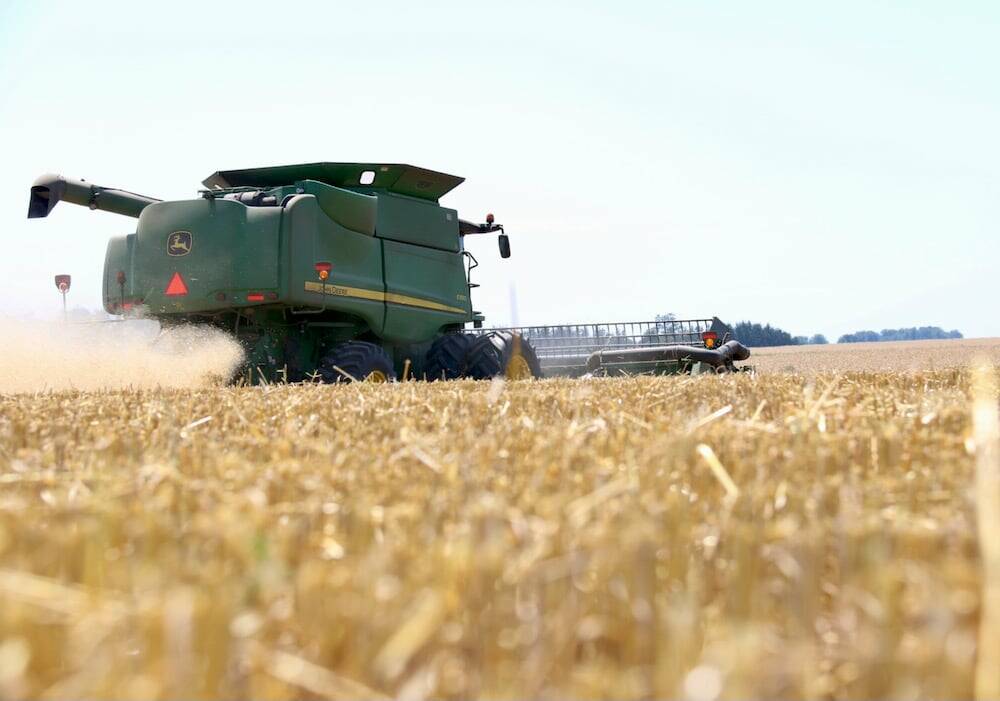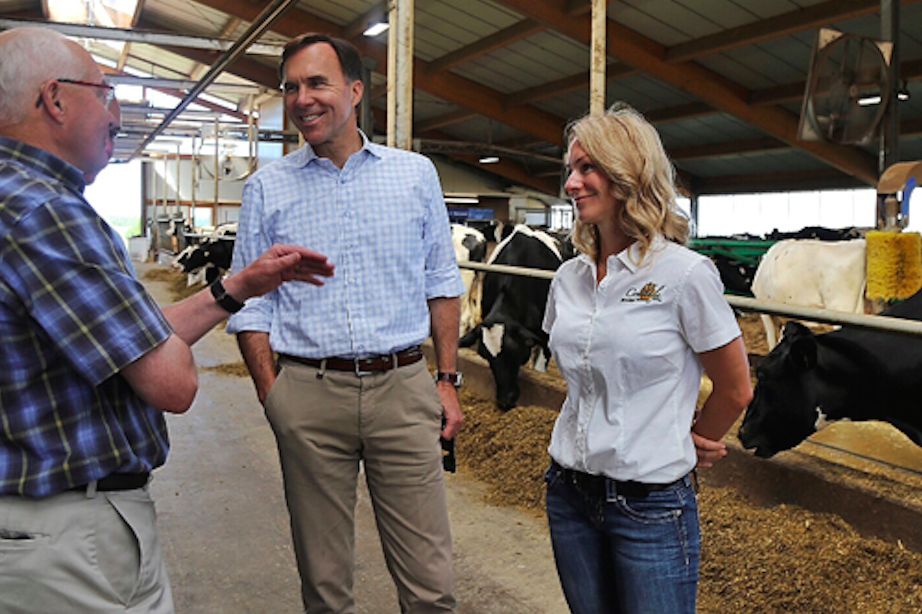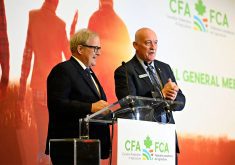National, regional and sector farm groups are forming up with several major business associations on the offensive against a proposal to reform how incorporated businesses are taxed in Canada.
The federal finance department tabled a series of proposals July 18, opening them for public comment until Oct. 2 for a proposed effective date of Jan. 1, 2018.
The proposals call for an overhaul of the private corporation tax system. According to the federal finance department, the proposals are meant to “ensure that high-income individuals cannot use strategies involving private corporations to gain unfair tax advantages.”
Read Also

GIWA trims Western Australian crop forecasts, still predicts record harvest
The Grain Industry Association of Western Australia (GIWA) slightly lowered its estimates for the state’s 2025/26 production of wheat, barley and canola on Friday but said the harvest of winter crops was still on track to be the biggest ever.
The proposals speak to measures such as income splitting, dividend payments to family members, and lifetime capital gains deductions.
The government noted the number of Canadian-controlled private corporations (CCPCs) has increased “substantially,” from 1.2 million in 2001 to 1.8 million in 2014, with an “increasing proportion of self-employed individuals” now choosing to incorporate.
CCPCs, the finance department said, now also account for more than twice the share of taxable active business income (relative to gross domestic product) that they did in the early 2000s.
But the proposals, according to the Ontario Federation of Agriculture, also stand to affect an estimated 25 per cent of Canadian farms that operate as private corporations.
The comment period alone is a point of contention for groups including the Canadian Federation of Agriculture, which recently said a “75-day consultation in the middle of the harvest season is not enough to allow a comprehensive review.”
Given the consultation timeline, “there has been nowhere near enough time to understand the implications of the proposals,” Todd Lewis, president of the Agricultural Producers Association of Saskatchewan, said in a separate statement. “The changes are very technical in nature, and we need more time to fully understand their potential impacts.”
As for the proposals, they represent “transformative changes that would bring about major uncertainty for farms that are incorporated, especially for multi-generational family farms,” CFA president Ron Bonnett said in a release Thursday.
“The government must recognize that small business owners face unique risks and costs — especially in agriculture where farmers must plan for a wide range of factors that can affect their operations from year to year.”
‘Higher costs, fewer options’
Business groups including the Canadian Federation of Independent Business, Canadian Bar Association, Canadian Medical Association and others on Thursday announced a joint campaign as the Coalition for Small Business Tax Fairness, to oppose the tax proposals.
“If implemented, the proposals will restrict small business owners from sharing income with family members; limit certain forms of saving in the business, making the firm more vulnerable in bad economic times and less able to innovate and grow; and change capital gains rules which could make it more difficult for business owners to transfer their business to the next generation,” the coalition said Thursday.
Agricultural and related groups signing on so far for the joint campaign include the CFA plus the Canadian Pork Council, Canadian Cattlemen’s Association, Grain Growers of Canada, Canadian Horticultural Council, Grain Farmers of Ontario, Western Canadian Wheat Growers Association, Canadian Association of Farm Advisors, Agricultural Manufacturers of Canada and Canadian Veterinary Medical Association.
“If these changes are implemented as proposed, farmers will face higher costs with fewer options to manage business risks, and the complexity of the proposals could lead to other unintended consequences,” the CFA said Thursday.
“The proposed changes to the tax code will dramatically limit the ability of (farm) families to invest in their businesses, encourage the next generation to remain on the farm, and engage in succession and retirement planning,” Grain Growers of Canada president Jeff Nielsen, an incorporated grain farmer, said in the coalition’s release.
In a recent separate statement, Ontario Federation of Agriculture president Mark Wales said that under the proposals, any farmer who has incorporated his or her business needs to review his or her succession and tax plans with an advisor, “to ensure they make sense under the proposed changes.
“The tax implications of not being in compliance with the new rules could be severe,” he said, noting the changes could also “penalize farmers who choose to transfer their incorporated farm business to the next generation.
“It is completely unacceptable that legislative changes would make it easier and lower the tax bill for a farmer to sell their farm business share to a stranger, rather than their own child or grandchild.”
“In my view, this is the biggest tax reform package since 1971,” farm business management expert Merle Good told Alberta Farmer’s Jennifer Blair recently. “These changes that they’re bringing in are primarily going to restrict our ability to convert farmers’ wealth into retirement income and their flexibility in transferring the farm to the next generation.”
“My main concern is that they’re going to go through with these changes no matter what and the farmers are going to be caught off guard, and it will be too late at that point in time,” Allan Sawiak of accounting firm Kingston Ross Pasnak in Edmonton said in the same article. — AGCanada.com Network














